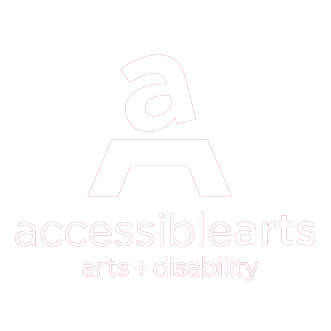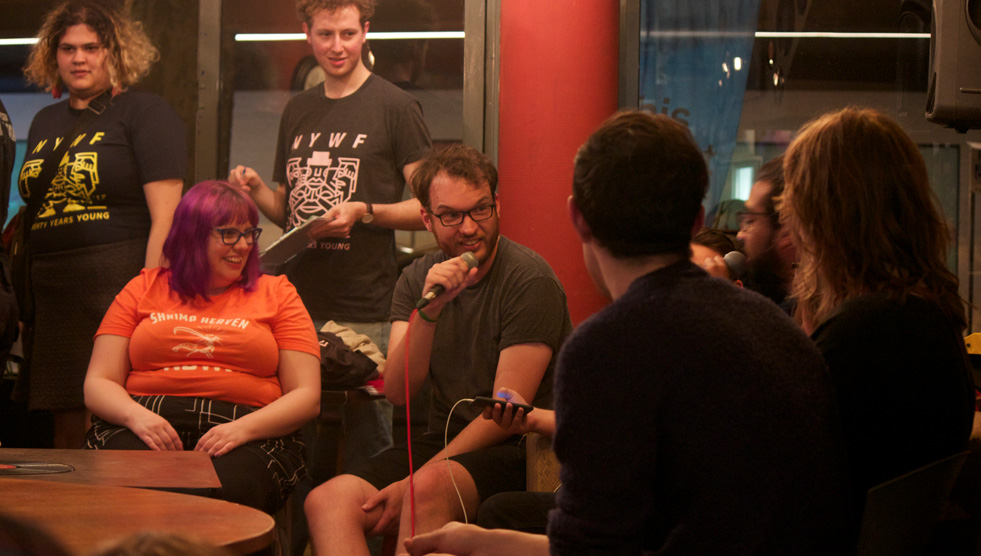Meet Alistair Baldwin leading up to Narrative Prosthesis
Join Alistair Baldwin and Robin M Eames as they discuss disability, tokenisation and disruption in literature and the arts writ large.
This event – Narrative Prosthesis on Sunday 30 September – is presented by the National Young Writers’ Festival (NYWF) as part of This is Not Art (TiNA) coming up in Newcastle.
In the whirling chaos that is life, we managed to track down Alistair to ask him a few questions leading up to the Festival.
But first, who is Alistair Baldwin?
Alistair Baldwin is a writer and comedian, based in Naarm / Melbourne, who has written for The Weekly with Charlie Pickering and the upcoming season of Get Krack!n.
This year, he received a Wheeler Centre Hot Desk Fellowship to work on his passion project Invalid Memoir, a satirical collection of personal essays about muscular dystrophy, disability politics, identity, sexuality and showbiz.
Accessible Arts: At this NYWF event, you’ll be chatting with Robin M Eames. Have you collaborated before?
Alistair Baldwin: I haven’t worked with Robin before, but I’ve been aware of Robin for a while – particularly for their great poetry, activism and excellent Tweets. I’m quite grateful and excited that NYWF has paired us together for an in-person chat – it shows good programming taste, in my opinion.
AA: Where did the event name Narrative Prosthesis come from?
AB: Ultimately, it’s the Festival that decides the event name, but when I was applying for the Festival I did bring up ‘narrative prosthesis’ a fair bit as an area of interest.
Narrative prosthesis is an academic term, created by Sharon L Snyder and David T Mitchell, that refers to the pervasive use of disability in literature and media more as a device of characterisation or metaphor than for what it really is – a facet of identity.
It’s a way of discussing the tropes that hound disability representation – Bond villains always have a disability/disfigurement/mental illness because it’s a metaphor for their evil, while a secondary character will always ‘overcome’ a disability to inspire a protagonist to conquer their boring romantic issue or work problem.
I’ve written quite extensively on narrative prosthesis as it relates to Australian film and television. In fact, it was the focus of my Screenwriting Honours Degree.
AA: Will there be a Q & A?
AB: There will be a short, moderated Q & A at the end of the discussion.
Wanting more?
To read more by Alistair Baldwin on narrative prosthesis, here’s an article published on the website of the Australian Centre for the Moving Image.
To view the full TiNA program, visit here.
Where and when?
Narrative Prosthesis is taking place on Sunday 30 September from 3:00 pm – 4:00 pm at the Watt Space Gallery, 20 Auckland Street in Newcastle. It’s free and no bookings are required.
Feature image: supplied by NYWF
This page was first published on 18 September 2018.

